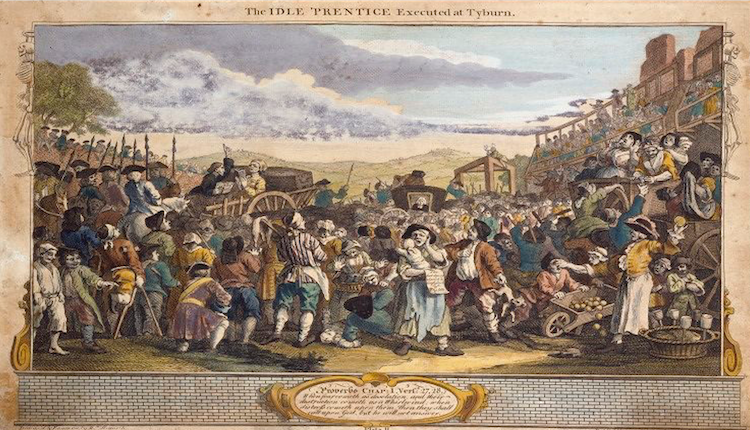Here Elena Stevens explains her rationale for planning and teaching Crime and Punishment at Key Stage 3.
Crime and Punishment at KS3: Using local history to whet students’ appetite for GCSE


Here Elena Stevens explains her rationale for planning and teaching Crime and Punishment at Key Stage 3.

History teachers in England seem to agree that planning and teaching is best achieved through the Enquiry Question. And they are right to. A Rileyesque enquiry works (Riley 2000). Full stop! It is all very well to be looking for that killer enquiry question. But if you never show your[…]

Some people say knowledge is power. Others say powerful knowledge is power. But that is another debate. But how is the history teacher being controlled? We know we are being controlled by Ofsted. SLTs react to what they think Ofsted are looking for. This is then forced upon teachers through teaching[…]

There is a strong case for English pupils studying more Wider world histories. I outlined in the previous blog post on this topic. The National Curriculum at Key Stage 3 gives schools ample scope for such a study. Nevertheless, diverse world history units, in general, are somewhat hard to find[…]

Ever since I started teaching history I have been hugely conscious of the need to teach a broad and diverse history curriculum. My curriculum offer has always attempted to focus on unknown voices of people from these islands and beyond. I have taught about forgotten English people from our rich[…]

Ever since I started teaching, assessment at Key Stage 3 has proven to be a thorny issue. National Curriculum levels were introduced way back in 1995. And, they were contentious, to say the least. Their abolition in 2014 should have been celebrated. Yet, according to the brilliant annual HA survey,[…]

20 year’s worth of thinking has gone into planning and resourcing the HRC KS3 curriculum. The rationale behind this comes from scholarship, policy and best practice. The free schemes of work and curriculum map provide you with an ambitious and coherent curriculum plan. We believe that the National Curriculum for[…]

Yesterday we had an INSET day focusing on curriculum planning. We enjoyed the second collaborative day whereby the local primary schools attended the secondary school for joint CPD. The afternoons are fantastic! Fantastic CPD Secondary and primary classroom teachers attending sessions together, delivered by colleagues. My NQT and PGCE trainee[…]

As you know Ofsted are changing their focus. They are proposing they look much more closely at the quality of the curriculum in schools. Over the last two years, they have conducted 3 research projects in schools. Knowing what their findings here are is really helpful. We live in a[…]

Praise be! In the last few months, there has been lots of interest in curriculum planning again. Recently, Ofsted has viewed many of the schools they inspect as exam factories where pupils are taught to pass the test at the cost of a high-quality education. The latest Ofsted framework focuses[…]

So there seems to be some blather recently around the question: how do we decide what to teach in a curriculum? Ofsted This has inevitably be fuelled by talk of Ofsted changing its inspection framework over the coming months to focusing more on the quality of the curriculum and less[…]